Last year, the New York Times published an article about lactation consultant Freda Rosenfeld. A reader responded that the fee charged by lactation consultants is outrageous…depending on where you live, it can cost between $120 - $300+ per session. It is wise for parents and parents-to-be to understand and evaluate what IBCLCs do and ask “Are IBCLCs worth it?” We come back with a resounding “Yes!”
Why hire an IBCLC?
Families who seek the help of an IBCLC (International Board Certified Lactation Consultant) get the gurus of breastfeeding knowledge and support. If you had a toothache, you would seek the care and advice of someone who is an expert on teeth, your dentist; if you were concerned about your heart, you’d find the most qualified, expert cardiologist. An IBCLC is an expert on breastfeeding. By finding one as you begin breastfeeding, you equip yourself with the very best support available. A strong support system can significantly help you meet your breastfeeding goals. A good IBCLC can be the key player on your A-Team.
What do you get for your money?
IBCLCs work in a wide variety of places and contexts. Some work in hospitals just after birth and others research and further the understanding of breastfeeding. You can also find IBCLCs in organizations that promote maternal/child health and nutrition, such as WIC. IBCLCs are a varied group in terms of background, areas of specialty, and communication styles, but they stand firm that Babies are Born to Breastfeed.
Many moms, through the course of pregnancy and birth, find that what they need is one-on-one help when they have questions or breastfeeding seems difficult. Private practice IBCLCs fill this role. A lactation consultant in private practice is self-employed, or she might work in partnership with one or two other IBCLCs. While $120-$300 seems like a lot for the time required for a consultation, think of it this way: you get years of study and experience, the full attention of an expert focused on YOU, follow up via email, phone or text, a listening ear, detailed reports for health care providers (putting everyone on the same page for your care), and someone who is required to learn, learn, learn how to support you. Your IBCLC spends time reading research, connecting with other lactation professionals, and staying up to date on the latest methods, trends, and breastfeeding products. Adding all that up, it’s a bargain!
Are there any IBCLC’s in my community?
Hopefully, YES! Many hospitals and organizations that support mothers recognize the expertise board-certified lactation consultants bring. Asking your health care provider, childbirth educator, and doula about breastfeeding resources in your community can help you beat the Booby Traps! These people can recommend IBCLCs who want to support your desire to breastfeed.
Unfortunately, some families struggle to find an IBCLC when they need one. The CDC looks at the number of lactation consultants per capita and has found that we still have far too few IBCLCs to meet the needs of moms. Mothers have long relied on mother-to-mother breastfeeding support groups like La Leche League, which are outstanding when we have questions and seek a community of other new and experienced moms, but sometimes, the eyes and knowledge of a medical professional are necessary.
The training to become an IBCLC is rigorous. It’s a major commitment, just like the training and education any medical professional must acquire. IBCLCs must demonstrate competence in a wide variety of subjects and in support of breastfeeding mothers and babies, either as volunteers or in paid work. Most, but not all IBCLCs have breastfed babies of their own.
The good news is, with the increased support spurred by the Surgeon General’s recent Call to Action to Support Breastfeeding, access to help should become easier. Currently, there aren’t enough IBCLCs in every community, but more candidates will soon seek to become the kind of IBCLCs that moms need.
Are IBCLCs covered by insurance?
Getting reimbursed by insurance for in-home lactation consultations by an IBCLC depends upon the insurance company and plan. I recently had a call from a mom who said that her insurance would cover a consult, but only with a “preferred provider.” When we searched the database of preferred providers, the closest IBCLC on her plan was 300 miles away! Some plans cover consults and pump rentals, but there can be numerous barriers to receiving payment. Unfortunately, many IBCLCs do not pursue insurance plan affiliation because of the difficulty in getting paid. If a mom would like to submit a claim for insurance reimbursement, she can request a “Superbill” for submission to her insurance company. It will be prepared by the IBCLC and clearly state the information the insurance company needs.
The fact that support services which augment breastfeeding success rates are not routinely covered by insurance is a huge public health policy concern, one the Surgeon General addressed in her Call to Action. Ensuring appropriate compensation for IBCLCs as professionals in maternal/infant health care ensures better outcomes for mothers, babies and health care providers. Let your elected officials know if an IBCLC helped you breastfeed your baby, and that you want insurance companies to recognize the professionalism and unique competence of the IBCLC!
Are IBCLCs worth it?
If an in-home consult with an IBCLC seems expensive, consider its value alongside other things you would spend money on for your baby. How much did you pay for your stroller? Your highchair? Would you be willing to pay that much for expert support? If you are feeling challenged by breastfeeding and considering giving up, consider the cost of NOT seeking professional help: artificial baby milk to feed your baby if donor milk is not available; bottles and the energy required to prepare, heat, store, and clean them; and the statistically likely increase in healthcare costs for a baby who doesn’t receive breastmilk. These are among the financial costs of not breastfeeding. While breastfeeding is NORMAL, the risks of not breastfeeding are significant - and expensive!
An IBCLC can be a critical player on your team. They serve a unique and expert role in detecting and solving breastfeeding problems. Having a community of support in your breastfeeding journey can be invaluable, as well. La Leche League and other breastfeeding support groups will keep you on track and help you stay confident in the biological norm of breastfeeding. For those that qualify, WIC can be another fantastic supporter of breastfeeding.
Having experts on your side while breastfeeding your little one is one of the most valuable things you can do. Enlisting their knowledge and support can be a win-win both for you and your baby and the community as a whole. You get an expert, an encourager, a detective, a clinician and cheerleader all rolled into one! Strong support means strong Babes!
Did you use an IBCLC? Was it worth it to you?
 |
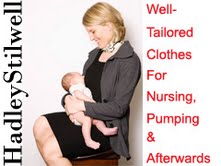 |
Editor’s Note: To locate an IBCLC near you, go to www.ilca.org, click on “Find A Lactation Consultant” and plug in your zip code. It’s a great idea to interview several BEFORE you give birth, (put the phone number in your speed dial!) especially if the hospital where you deliver does not have enough qualified lactation help on staff. Ask your support person if they are an IBCLC, helping you to know that you are getting the very best in breastfeeding expertise.
 Amber McCann is an IBCLC just outside of Washington, DC, serving moms through Nourish Breastfeeding Support. She is particularly interested connecting with moms through Facebook, Twitter and her blog. In addition, she’s madly in love with her husband, Justin, and loves to have dance parties with her three kids, Svea, Rory and Tait.
Amber McCann is an IBCLC just outside of Washington, DC, serving moms through Nourish Breastfeeding Support. She is particularly interested connecting with moms through Facebook, Twitter and her blog. In addition, she’s madly in love with her husband, Justin, and loves to have dance parties with her three kids, Svea, Rory and Tait.



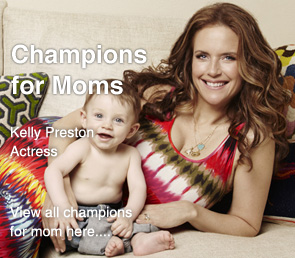
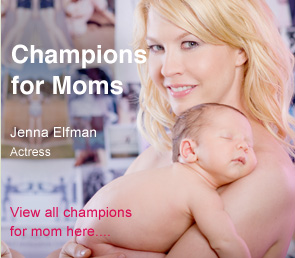

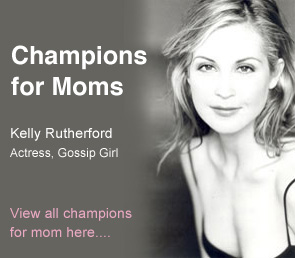
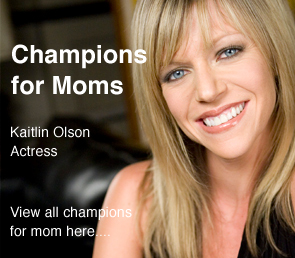
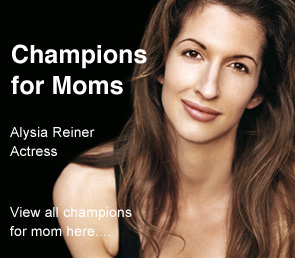

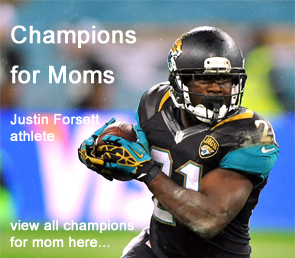

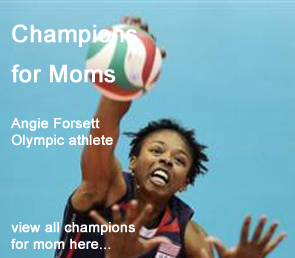
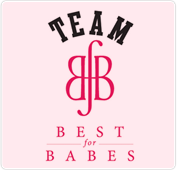

I was lucky enough to attend a mothers group at my hospital that was run by a IBCLC and it was wonderful. They have since changed the program and in my opinion it is no longer worth attending.
Write a letter to the hospital! Unless they hear from moms, they won’t change it back to the wonderful program it was!
I do feel that lactation consultants are overpriced and not accesible enough. If you had trouble nursing and you were a low income mother there is no way that you could afford to go. Since WIC pays for most of the formula, that is a route a lot of low income mothers will go. And I think that low income mothers are already at risk of not breastfeeding, I think that extra consideration should be given to them.
I must say that I am not sure what type of training lactation consultants have, but to me people with a professional degree charge the amounts they charge and I sure hope that they are not taking advantage of a desperate and hormonal clientele in order to charge outrageous prices
Ingrid, it’s true that many moms cannot afford the services of IBCLCs. Almost all IBCLCs I know are willing to work out payment plans or even donate services to a family who needs them. However, this speaks to the larger problem of how healthcare is paid for in our country. The cost of a two hour HOME VISIT is similar to what a pediatrician charges for the first in-office check up, but that is covered by insurance for most people. One reason there aren’t enough IBCLCs is that many of us don’t make enough money to stay in business. Even with out an office, number of hours we are actually charging for in any given week often barely covers our overhead. I don’t know any IBCLCs in private practice that are getting rich - we all do it because we are passionate about supporting women in their breastfeeding goals.
Ingrid, I charge less than most women pay for a cut and color. Seriously. And, yes, there are women who cannot afford it. Luckily, in our area, we do have excellent services through WIC. I am also able to triage a lot on the phone and know who can help her best. Sometimes it is her hospital where she delivered where free services for outpatients are available or less costly services at least. I also can connect her with the right person in her WIC office. And, if she still cannot get help, and is really in need, I will make arrangements for her to pay what she can afford. However, I have done this and had those same moms pull up in cars I can not afford, using diaper bags I cannot afford, wearing jewelry I cannot afford…see? It is not always what they can ‘afford’, sometimes it is what they are wiling to spend their money on. LCs live in the same world the mothers they work with do! It’s no different for us. We are all trying to earn a living and pay our bills. This is not a hobby, it is our job. Even so, there are very few who will not bend over backwards to help a mother get the help she needs. (Keep in mind too, that cost of living is different across the country, and while you may read a fee charged in one area, your area may be different. It doesn’t hurt to ask.)
WIC has dramatically changed their program in the past five years. The offices in my county have a breastfeeding peer counselor at EVERY location, ready to offer help to any WIC mom and she doesn’t even need an appointment. They are supervised by IBCLC’s so if the peer counselor feels she’s in over her head, she can call in the big guns.
Debbie, I don’t know if you remember posting here, but I just ran across your post and wanted to comment; I used to agree with you because I had used the WIC breastfeeding counselor, 2 different girls for the same issue, but the only things they did for me was help show me what to do to get the baby to latch, which i guess was helpful but they were only there for 2 hours after birth and naturally soon after she left was when I ran into issues. I tried calling the WIC office to talk to another teacher because I couldn’t get a hold of my then current WIC breastfeeding counselor and she just talked to me over the phone about what to do to fix the issue, wouldnt come back out to the hospital until the next day evening hours. For some odd reason, WIC was not set-up for an IBCLC then, they claim it was because of a scheduling mix-up but I have never heard of that. When I was out of the hospital I followed up on that and found out they never had an actual IBCLC on staff to supervise. So in the meantime my mom tried to help me fix the latch problem I was having but she just didnt know what to do. Luckily I had the number of an IBCLC, that I meet at breastfeeding meeting and she came in about a half hour later and mind u it was going on 10pm when I finally tried calling her. I agree they are pricey, I was not in a position to spring on stuff like that but if you are worried about cost think of what you are paying for, a guarantee to help, support and instruction of proper breastfeeding. I only used the IBCLC a couple times after that and even though it seemed pricey at first, I think about it now and dont even think of price when I think about all the information, guidance, support and follow-up she gave me. I talked to some of my friends who have used a lactation consultant as well as the peer counselor and they weren’t all using the same WIC location, there were 2 other WIC locations (so it wasnt just a local issue) and they say the IBCLC was beyond worth it, because they are trained vigorously. They have to do 1000 hours of clinical work, meaning they have hands on experience with anything and near everything that can happen during a birth process. Again, I used to think the WIC counselor was good enough until I ran into an issue thats pretty common but have learned the peer counselor will most likely not be able to help with or have a lack of experience/general knowledge of how to help with fixing it because they were not trained hands on or with specific breastfeeding training like the IBCLC was. I know I sound like I’m preaching to not use the provided help, but mothers need to know that there is help out there from people who have been trained on site as well as taught through reading the books rather than book only, which WIC provides, I have learned so much from her that a peer counselor would have no knowledge of or no experience with and my friends have said the same. Obviously the price reflects that, its not expensive and they can prob work with u on a payment plan if that’s the issue $ so if you are inexperienced in breastfeeding, do it. But you can also go to breastfeeding meetings through WIC and hopefully always they will make sure to give u the information on how to get a hold of the IBCLC if there isn’t one supervising the WIC consultant at the breastfeeding courses. I recommend having her number and talking with her before u go into labor especially if u r a 1st time breastfeeding mom. They are accredited with all the tools to help u with ANY breastfeeding issues or questions. If you are using the WIC counselor just be sure to meet the IBCLC and ask any questions to her first. Again, I’m not trying to discredit the WIC lactation consultants, it’s any lactation consultant who isn’t board certified. If you are a first time breast-feeder and if you are in a position where $ is tight, I still recommend IBCLC, more than worth it!
I am sure IBCLCs are worth every penny, and they deserve what they make, but it is still out of range for a lot of families, especially when you won’t know until after you’ve worked with them if they can really help you.
It would be great if it were easier to have it covered by insurance or extended medical. I think it is like hiring a doula, some people know how much it will help and find a way to come up with the money, but it doesn’t feel like a priority for everyone.
Do you know if any healthcare provider can help you 100%? I just paid 20% of S10,000 (ins pd the bal) to a top pain clinic for back and leg pain. They told me the chance of it helping was 50/50, it didn’t help either. I was referred to a physical therapist, went to her for a year before that. 26,000 dollars later and not one exercise to help me strengthen my core… Well you get the picture.
Babies and mothers are unpredictable. And, it is a lot more complicated trying to help a little one to breastfeed when you cannot read his mind or look in his mouth while he is actually attached to the breast. It can be a very humbling experience to help a mom with all of the experience, education, and evidence based medicine and it doesn’t work no matter how much you try. So, remember there are no guarantees in life no matter how you look at it.
I have no doubt that ICBLCs are worth paying for if you can afford one, but they cost too much for my family who is struggling to make ends meet. Insurance covered 1 short visit during our hospital stay and that was it. I would still love to discuss some concerns with one (despite my son being nearly 10 months old), but saving up $100+ for a visit doesn’t seem worth the expense. In the meantime, I have found great success with help from friends on the internet, LLL, Dr. Jack Newman’s website/videos all for free.
Unfortunately many of us cannot afford to see a IBCLC at those rates. I am blessed to live in a community with a very talented IBCLC that is also a public health nurse on the home visit team. She helped me for free. Yes our tax dollars pay for public health, but in the long run, helping a mother nurse successfully is actually saving money for the community down the road. As an aspiring IBCLC, my dream would be to help mothers for free if I could, and hope to do so in some way, even if I have to have a “real” job and help mothers on the off hours. I know people have to make money, but it troubles me that the rates are so high, especially if one’s passion is for helping mothers breast feed successfully. I have friends in other communities that aren’t as lucky as I am, and would cost them way too much for ONE visit! So they exclusively pump or turn to formula. I don’t see how such high rates help any of us.
You do know that formula feeding will be more expensive, right?
I agree with what Pam said above, it’s what people choose to spend money on. The latest stroller and brand-name diaper bag were not a priority for me. I live on Long Island and the IBCLC that I called came to my house and was there for 2 1/2 hours! She was thorough, gentle, caring, and such a great support for me. Not only did she help me, but she taught me so much and gave me accurate information. She was available to me via phone and when I thought I wouldn’t make it to one month, with her help I made it to my son’s first birthday. So if you ask me, I believe IBCLCs are worth every penny. Plus I saved a lot of money since I never needed to buy formula!
I agree they are pricey, especially when you dont have the means to support that kind of help but the WIC breastfeeding people are supposed to have one supporting them at all times just ask IBCLC first about any problems or issues you are having before asking a WIC breastfeeder, when u talk to an IBCLC and explain the issue that you are having trouble with and she knows the WIC consultant cant help, she will definitely help, I know a lot of then will help with the issue then if u ask give u some help with always having a IBCLC helping you. I was in no way able to afford my IBCLC at first but what she taught me was invaluable compared to what the WIC consultants tried to teach me . My IBCLC sat and talked me through so much and again I know u dont think u will need one or especially cause of their price but unless u have someone whos actually certified u will not get all of your questions answered PROPERLY or have the knowledge they can provide. I used to think the WIC consultant would be ok with numerous things that are happening that u have ?s about but if you want to make sure you are doing ok with breastfeeding at any time, know how to reach the IBCLC, cause I haven’t run into one who will not help out in anyway she can to make sure baby and u r doing well with feeding. Even if u dont think she has answered anything the uncertified or WIC consultant has already answered and u r doing fine with breastfeeding, just have her # b/c the WIC/uncertified consultants don’t have the techniques, anytime support of breastfeeding the IBCLC can provide. I used to think the same way u did, before I had my child, then when an issue arose and they can’t be reached or they dont know how to solve the problem, not only solve the issue but solve it correctly and be there for u with any breastfeeding issues even small issues, they will know how to solve the problem CORRECTLY as well as explain to u in a way that anyone who’s not familiar with breastfeeding can understand. They can go over why the issue is happening and teach u how to prevent the issue from ever happening again. I didnt think they were worth the $ until something happened to me and I was freaking out about it cause I didnt have the answer or help with getting breastfeeding down without any issues happening. But I had another IBCLC for my second baby because I had moved and I didnt have any issues that weren’t an easy fix from what I had learned from my first IBCLC, it was just nice to have support from someone who is accredited for breastfeedung issues around, also whenever an issue arose that I was questioning, I just called her. I’m not trying to tell everyone to get an IBCLC but if u are new to breastfeeding and don’t have a clue of what to do, have any issues or just general questions about how to go about it, RECOMENNDED, highly, they are worth the price! or if u r using the WIC consultant, make sure u ask the IBCLC, that is supervising her about problems, issues or more common questions that u dont feel comfortable with. Again, seems pricey at first, but SOOO worth it. There are obviously lactation consultants that are helpful and may seem like they know a lot, but unless they are board certified they do not have correct answers to all breastfeeding questions that may arise or don’t know the correct ways to fix any issues that can happen in later months or just general support for ANYTHING that will naturally or something that could happen while u r a breastfeeding mom. Again it seems expensive but the stuff that you’ll learn from her makes her worth the extra money.
We’re lucky to have a non-profit in my area that offers a free visit to moms if they need it. For me, it had been enough to shell out money for a good pump, and used at that. However, if I had it to do again, I would save up money to be sure I had in just in case. Once you’re at home with no help, things can go downhill fast. But I also understand the pricing structure. It’s like any professional who works independently for a select clientele and needs to still make a living, pay taxes and provide their own health/retirement benefits.
Props to Le Leche League - free, 24 hour support by phone/email, and monthly meetings!
In my opinion the issue is not what a lactation consultant might bill - it is ensuring appropriate insurance coverage for lactation services (including Medicaid). It should be mandated that insurance pays for the services of an IBCLC just as they cover visits with other allied health professionals.
When my milk came in, our baby’s latch shallowed up and caused abrasions. Fortunately my mom had breastfed us kids and was able to help, but I called the IBCLCs at the hospital where we delivered - which is when I learned that they couldn’t provide hands-on assistance after the baby had been discharged (due to liability reasons). They referred me to a local IBCLC in private practice, who came to our home for a lengthy and very helpful consult. Fortunately my husband and I had the financial means to pay, although I believe her fee was very reasonable. She was honest about her fees up-front and provided a special form/bill and a sample appeal letter that we could have used to try to get insurance reimbursement. After that I started attending a hospital support group and the IBCLC there is apparently able to bill insurance directly (she’s an APRN as well). My OB’s APRN is a lactation consultant too, as is the APRN at our daughter’s pediatrician’s office and if we needed help, a visit to either of them would cost us only the normal office visit copay (however I don’t know if they’re IBCLCs).
IBCLCs are allied health professionals and go through extensive training to become certified. I believe they deserve fair compensation for their time. Doctor’s visits are only affordable for most of us because we have insurance to cover much of the bill! In my mind, an IBCLC is an allied health professional, and lactation services should be covered just like physical or occupational therapy would be.
I agree that the issue is not the rate they charge — IBCLCs are medical professionals, and the $100 or so for their time and expertise is not unreasonable in my opinion — as Katie stated, the issue is adequate insurance reimbursement! Breastfeeding support should be covered by all private health insurance and readily available to those on WIC and medicaid.
Thankfully, there is an IBCLC affiliated with our family doctor and pediatrics practice who holds clinic hours with free weight checks and consults for the regular co-pay.
If you compare it to the cost you would pay in formula, it will actually probably save you money!
Definitely agree, nothing is worth subjecting your child to formula. Obviously costs, but the milk that you as a mom produce is healthiest, cheapest and since its breastmilk it holds key antibodies in it to protect the baby from illness. For example, a study in the Philippines showed that, respiratory infections and diarrhea were eight to ten times higher in babies who were artificially fed than in those who were even partially breastfed for six months. Worldwide, breastfed babies have a decreased likelihood for allergies and dental caries. They also benefit from appropriate jaw, teeth and speech development as well as overall facial development. This means that people who were artificially fed may experience more trips to doctors and dentist.I know I am going on about benefits of breastfeeding but just google it and compare it to “benefits” from formula feeding. Proven breastfeeding benefits for the mother as reduced rates of breast cancer and ovarian cancer. The time saved for mother is immense also. As a breastfeeding mother, you can feed your baby even during stressful times such as when normal supplies of food and water are not available, money saver. Obviously a real scary issue is affordability of supplies, http://www.llli.org/faq/advantages.html. I know a pump may seem expensive but talk to other breastfeeding moms in the area, they can help u out with that or your local LLLI chapter can always help with that.
For those of you who think it’s too expensive, what do you think is a fair rate to charge for a private IBCLC consultation? Is any amount of money too much or is there some kind of threshold? I am considering working toward my IBCLC but am not sure if I’ll ever be able to take in enough to pay for my education, certification, continuing ed and liability insurance, never mind having a little extra for my family.
As a lactation consultant in private practice, I charge for my services; as breastfeeding therapy and rehabilitation is as time and labor-intensive and as complex as any kind of therapy (whether it be rehabilitation from a automobile accident or a stroke, or counseling from a social worker, psychologist or psychiatrist), my fees are justified.
When I am hired, I basically move into the client’s life for a while. This means a 1-3 office or home visit, plus unlimited follow-up email and telephone contacts. I will charge for additional visits.
Counseling is an important component. One can go to one’s pastor or priest or rabbi for some counseling, at no charge, and that is enough for most people; if one needs in-depth counseling, one needs to go to a trained and educated professional. Breastfeeding help is similar. Most common breastfeeding issues are wonderfully handled, for free, from the local nursing mothers’ groups. If the mother and baby need in-depth counseling that includes a face-to-face interaction, then a person with more skills and education is required. Hence the fee.
People have to learn the difference between the common, garden-variety breastfeeding situations and the ones requiring sustained involvement. The public has to expand its awareness of the different styles of breastfeeding helpers.
warmly,
Nikki
I meant to say 1-3 HOUR visit.
Nikki,
So beautifully said. I always appreciate your well thought out and wise words. I like the pastor/psychologist analogy. So very true.
While at first glance the services of an IBCLC lactation consultant may seem pricey and out of the range of many families in a tight economy, we should also realize that the return on this investment can be priceless. Most of our health services are reimbursed by insurance companies or employers who are self-insured. An up-front $200 investment for a family can save them $1500-$2000 in formula costs, hundreds of dollars because they do not need to miss time off from work to care for a sick infant, hundreds of dollars because they do not need to pay co-pays for physician visits, and the savings that accrue from the avoidance of big ticket items like childhood obesity, diabetes, and other acute and chronic diseases. That $200 investment in a child’s health lasts a lifetime.
An insurance carrier can also save millions of dollars by reimbursing families or IBCLCs for lactation care and services. Some have figured this out and reimburse for these services. Others seem content to go right on paying for preventable diseases.
One thing that consumers can do to help fix this problem is to contact their insurance carrier and employer and ask that the services of IBCLC lactation consultants be reimbursed. If lactation services are denied by an insurance carrier, appeal this decision. If that does not work, file a complaint with your state insurance commissioner’s office. These services are often not covered because of a perceived lack of demand. We need to get feisty and ask for what we need. Since when do women sit back and not advocate for their families and themselves? If you want and need these services then demand them!
The US Lactation Consultant Association is working hard every day to improve reimbursement for IBCLC lactation consultant services. But we can’t do it alone. The voices of everyone visiting this website can go a long way to alert insurers and employers that breastfeeding families have an unmet need that is cost effective for everyone.
Thank you Marsha, and that is precisely why we asked Amber to write this article, and wrote the title to provoke discussion, hoping to spur moms towards demanding that their insurance cover lactation consults, as it is in their best interest! Thanks for cheering moms on to ask for what they need and become better advocates for themselves and all moms!
Marsha,
Can we quote this comment as a follow-up to this post?
Sure Amber, please feel free to use any of my material as a follow-up to this post.
While not every breastfeeding mother needs to be seen by an IBCLC, we would hope that hospitals, insurers, and policy makers understand that breastfeeding mothers need access to the level of care dictated by the situation. While peer counselors, other breastfeeding counselors, La Leche League Leaders, etc are invaluable in the services they provide, sometimes a mother or infant’s problems or situation requires services that are outside the scope of practice of volunteers. We are seeing so many more births that are complicated by interventions, more late preterm infants born with feeding problems, maternal diseases and conditions that inject complexities into the breastfeeding experience. IBCLCs have become vital to preserve breastfeeding in these and so many other situations. Mothers have the right to receive the level of care that they need.
Insurers need to hear this from those that they insure. Employers need to hear that their employees want lactation care and services as a covered benefit. More employers provide insurance coverage for acupuncture than they do for breastfeeding services. This is because acupuncture was in high demand. Let’s make insurance coverage for IBCLC services in high demand. Ask for what you need and speak up when you do not receive it!
When I first started reading this article, I was going to agree that the fee seems a bit pricey especially for low income families. After I finished reading everything including the comments, I have to agree that it is worth it! Low income mamas that can’t scrounge up the money for an IBCLC, can always contact their local La Leche League for help with breastfeeding. Doula fees are just as hard to negotiate. I will be dealing with that when I finish my training. In my area, doulas run for about $400 per birth (for a birth doula). Since insurance doesn’t cover that, I had to choose to go without one for the birth of my daughter. When I become certified as a doula, I plan to make my services available to most people so that low income mamas do not have to go without the benefits just because it is to expensive. I plan in trying to get as much learning as possible when it comes to breastfeeding as well. It is true that most low income families who are on WIC will just switch to formula when they have problems breastfeeding simply because they do not have enough support or help when things go wrong. I consider myself lucky that I did not have major problems when I first started nursing my daughter. The only problem I had was that she wouldn’t latch onto one side but a couple of uses of a nipple shield corrected it. I received a visit from the lactation consultant in the hospital before we were discharged and that was what she told me to do. I also received a home visit from a nurse to make sure things were going well, and this was free for us because we were on Medicaid at the time. I am not completely sure what our insurance now will/will not cover, so I need to check that since we are trying for baby #2. I would like to be able to offer some breastfeeding help to mothers while doing my doula work.
I would just like to note that in some areas (particularly in cities, etc.) WIC does have IBCLCs and also peer counselors that work with moms for free. I am one of those peer counselors and feel I have been very well trained to support moms and help them trouble-shoot common problems and concerns (and even some uncommon ones). I also know when to refer the moms I work with to one of my supervisors, who are IBCLCs. Just getting the word out so that people know that this resource is available. We work with moms starting in pregnancy to educate and up till the baby is a year old. We are available evenings and weekends, even when the WIC offices are closed and moms can contact us directly.
I encourage you to become a Postpartum Doula we came about to support breastfeeding.
By providing breastfeeding support when a family gets home the PP-Doula helps insures women get off to a good start, and all the minor issues are resolved and addressed or we quickly refer out to the appropriate health care practitioner so women go on to breastfeed comfortably. It’s vital to have routine minor issues addressed so they don’t become major unattended problems leading too many women to need an IBCLC.
This type of postpartum doula support for new mothers is the missing link in our maternity care in the USA to help with breastfeeding.
Anthropologist Dana Raphael wrote the book in 1973 “The Tender Gift: Breastfeeding” in this book she coined the word “Doula” defined as
Mother-to-mother Breastfeeding support and how it works worldwide when a women support you in your home with breastfeeding.
In the USA this is all self pay and women lack formalized care as part of their maternity care.
Most developed nations have national health care and it includes a trained woman like a postpartum doula who shows for a few hours each day to insure mom and baby are nursing well and to help out the new family.
It is important to recognize the difference between the IBCLCs other types of breastfeeding support providers.
IBCLCs are allied health professionals who provide clinical care specifically for crisis intervention and unusual/ difficult problems. They work in hospitals, clinic, doctor’s office, or mothers home. Their approach is problem oriented, short-term assistance, episodic, usually in person and requires frequent physical contact. They use equipment more frequently due to the nature of problems they manage. They are in a position of authority and may give direct advice or instructions. As medical providers they must adhere to standards to complete documentation and reporting that is required and have liability insurance coverage. They have defined clinical competencies, scope of practice, ethical principals and disciplinary procedures to maintain their certification. They have extensive education and clinical requirements prior to also passing an exam and becoming certified.
Other lactation training programs and certifications have been created for professionals and volunteers to equip them with basic knowledge of lactation support. Generally these are 15 to 45 hour courses designed to be add-on credentials for persons who have contact with pregnant and lactating women.
The exception is found in Leche League Leaders who have more extensive training to provide information and encouragement, mainly through personal help, to all mothers who want to breastfeed their babies. La Leche League Leaders focus on preventive care and the normal and natural course of breastfeeding. They may work in their own home, mother’s home, or at meetings. The care is life-style oriented, long-term, ongoing and usually by phone, with rare physical contact. They are mothers who volunteer as they are able.They rarely uses equipment because they are not dealing with difficult breastfeeding problems. Leaders can offer mothers choices, but give no direct advice or instruction. Their work has an emphasis on listening skills. They do keep a Leader’s log, but are not required to report this anywhere. They follow La Leche League guidelines and protocols.
I’m glad to see this kind of article illustrating the value of lactation consultants. It is definitely not a profession that yields a high income. Yet I do believe there are ways to make it easier for parents to find affordable support while working on ensuring adequate health insurance coverage for quality lactation care when there are serious problems.
Here in the New York City are we are trying to increase accessibility for parents to find IBCLCs through the New York Lactation Consultant Association. And yes, Freda Rosenfeld is a very active member. I’ve nicknamed her the Energizer Bunny because she just keeps right on going no matter what with a positive constructive attitude. We have revamped our website so that parents can find many different service options.
Home visits are excellent for mothers who are not very mobile, who have serious problems, or prefer privacy. Yet this requires the IBCLC to spend time traveling to the mother, bringing her weighing scale often up and down subway steps, and then sit with a mother for 1-3 hours. How many other health care practitioners do home visit these days? The only example I can think of is Visiting Nurses.
We also list less costly alternatives offered by lactation consultants such as office visits, semiprivate group clinics and drop in group clinics. I personally encourage mothers to to attend groups when they have mild to moderate problems and are mobile because they get support from other mothers as well as from the IBCLC. Groups can be very helpful and affordable for those problems that need time to sort through because mothers can make adjustments week by week without getting overwhelmed by trying to make breastfeeding perfect all at once.
And because peer counseling also plays a valuable role, we do list the various credentials of our affiliate members (those who are not IBCLCs but do provide breastfeeding assistance)and list mother to mother support groups that are facilitated by these peer counselors.
We have an advantage in New York City of having a high population density, but I think the model could work in other urban centers.
Thank you for writing this Amber. As a private practice lactation consultant and mother of 5, I have been on both sides of the baby so to speak. I’ve been the struggling breastfeeding mother who could not find a practicing lactation consultant to help me and the enthusiast lactation consultant. I run a business that provides a unique service. I am available 7 days a week. I can be facebooked, emailed, texted, tweeted both day and night. I don’t ask my patients to come to ME during office hours, I go to THEM. I ask them to stay in their pajamas, in bed, without teeth brushed. I can see beyond sleep filled blood shot eyes. And yet, when it comes time to get a fee for service, I feel this inevitable “ugh” and “it’s how much” and “it’s not covered by insurance?” No it’s not always. Nor is regular baby formula. Nor is a doctor’s co-pay for a visit for ear infections, diarrhea, asthma (not to mention the medications that go along with them). I’d like to think that breastfeeding is an “ounce of prevention” and I deliver that right to my clients door. Oh and by the way, I would never consider doing any other job that being a lactation consultant. It’s a passion. A true passion.
Amen, Dana!
thank you Amber and best for babes. I’ve already “liked” this post and follow you with my fb page. Many people don’t realize that the home visit is just the tip of the iceberg in terms of time for the private practice LC. After the visit, i fax reports to drs, sometimes call drs. multiple times, answer many phone calls and emails from the mom-sometimes for months or even years. I probably make about 6 cents/hour! I do all my own record keeping, accounting, marketing and phone answering. And please, please mommies who are saying they can’t afford this kind of help. Look seriously at where your money goes. this is a very tiny investment for something that is incredibly important to you and your baby. Talk to the LC’s in your area. They will probably work with you. When I talk to a low income mom, I ask how much she can afford, and we go from there.
Good luck everyone. It’s fun to see some of my colleagues posting here!
Not all breastfeeding problems need to be seen by an IBCLC.
There are so many other types of helpers available to nursing mothers in need of support or addressing a problem.
La Leche Leaders
Postpartum Doulas
CLC (Certified Lactation Counselor)
WIC Breastfeeding Peer Counselor
If you are poor enough in the USA there is always help from the WIC office, many of the counselors there are IBCLC. WIC does not push formula as some believe they do. They push breastfeeding! WIC now pays a salary to the breastfeeding peer counselors to help other breastfeeding mothers.
Women need to be informed and know their are options for support before a nursing problems turns into a crisis and a call to a IBCLC. If a IBCLC is needed their worth the money.
Switching to Formula b/c it’s just easier? Really, this is the example we want for our little one’s? When things get difficult, don’t continue, just quit! I am a mother of 4 (7YO, 5YYO, 3YO and 5 months). Here’s my story:
My daughter was born almost 8 weeks premature. I was unable to nurse in the hospital and had to pump so she could feed thru a tube. This was our “normal” for the first few weeks. Then we switched to a dropper/bottle since she was having issues latching. This was our “normal” for the next few weeks. The pediatricians weren’t happy with her weight gain and labeled her “failure to thrive”. Immediately suggested formula and stop nursing. I switched practices and moved to a nipple shield. This was our “normal” for another 6 weeks. During that time we discovered she was allergic to daily. I heart dairy, but gave it up. I moved to a dairy free diet. I went to the Breastfeeding Resource Center in Abington, PA during this time to continue to progress and moving towards helping teach Bryn how to latch. It was an extremely difficult ordeal. Even though I already had and nursed 3 other children for the first year+ of their lives, I had never experienced such issues/troubles with nursing as I had this time. Jen McClure, IBCLC was a God send and continued to encourage, provide information on dairy free products, pro-nursing doctors and tips and tricks to help Bryn thrive on nursing not just survive. With Jen’s help I am happy to say Bryn is 5+ months old (still a little peanut, but growing strong) and formula free. Without the Breastfeeding Resource Center this would not have been possible. The fee I paid was a joke compared to the level of commitment, support, concern, follow up and general ~ we’re behind you mom I received. With 4 children, I knew financially this would be an investment, and yet, didn’t hesitate to pay their fee. It was the BEST money I have ever spent. I will forever be in their debt and will continue to support the Breastfeeding Resource Center and their IBCLC’s for years to come!
@COLLEEN LEADER - Who are you responding to? Where does this article say to switch to formula? I cannot imagine anyone who is informed making that type of recommendation on this website!
“The pediatricians weren’t happy with her weight gain and labeled her “failure to thrive”. Immediately suggested formula and stop nursing”
The doctors suggested that she switch to formula. I ran into the same problem when I moved from Italy back to the states. I had a great LC and very pro- breastfeeding nursing/ doctor staff, plus a peer support group and now I have a LC that is damn near impossible to get a hold of, no support group and a pediatrician that insists that I give my baby girl formula (which I refuse!)
As a lactation consultant in private practice, I offer families a payment plan if they’re unable to afford the entire fee up front. They can make an initial payment at time of service and then post date two to three checks. I interestinly have only had a few moms take advantage of this at the time of the visit when given this information at their first call to me, but I hear the relief and appreciation in their voices that there can be a way to get in-home, expert help. I also always offer a sliding scale fee for home visits, my group, and prenatal class. Helping moms and babies to breastfeed is my passion, a costly one for me, however, due to my expenses to maintain my expertise. I can think of nothing I’d rather do.
Barbara Latterner
Amber, this is an excellent article. Thank you Marsha, Nikki and others. Well said. The number of hours I spend with a new client face to face is 2-3 hours per visit. I write a detailed report to the mother’s physician and one to the baby’s physician, talk to both doctors, follow up by phone for free, do the accounting, order the supplies,talk to the insurance companies,offer a free online breastfeeding webinar every week, read the journals, have ongoing discussions with other IBCLCs on how to improve our skills and knowledge, go to as many conferences as I can to continue learning so that when the day is done there is little money left over to “make a living” on. I have asked many IBCLCs in private practice if they make a living without doing something else such as speak and/or sell products. The answer I hear? No. The problem is that insurance companies do not consider IBCLCs a valuable part of the healthcare team. To make a living you have to make money. Until they do there will be few and far between lactation consultants pouring their lifeblood into helping mothers and babies breastfeed. Those of us that do depend on those families that have enough money to set priorities of how they will spend it. And that will always mean that we can not help everyone. That is the reason I offer my class for free.
Debbie
I would have gladly paid 200 bucks for a real IBCLC. Moms really need to know who they are hiring and know the definition of the letters that come after their name. I had a horrible experience with a “lactation nurse.” She came recommended by a family friend who worked at the same hospital she did. She came unprepared, sent my husband out for a nipple shield while we sat doing nothing for half an hour and then after he got back and my baby still wouldn’t latch she told me to give up and formula feed. She also compared formula to a big steak dinner and breast milk to salad. I had planned on pumping exclusively if the latch issue couldn’t be fixed but she said that was a pipe dream. She then asked for her fee of 200 after only being there for about an hour. I had no idea it would be so expensive for so little help. I wrote the check and burst into tears as she left. I ended up formula feeding. She never even mention an SNS or other ways to try to get him to feed at the breast. I was so turned off to any lactation consultants after this but I now realize she was most likely not an IBCLC. Luckily my next baby fed just fine and we are going strong at 15 months.
I was an IBCLC for 10 years, but no longer practice and instead am in retail and wholesale breastfeeding products. One reasons IBCLC’s are not accessible and fees seem high is because they have to make a living. It is hard to make a living as an IBCLC without selling product. And many times they give hours of free advice over the phone only to have moms go buy their breastfeeding supplements and breast pumps from a big box store or a local health food store. So if you are reading this, consider buying your supplies from experts and companies that support breastfeeding instead of those who sell anything and everything whether it is good for you and your baby or not.
Pingback: Why Hire an IBCLC? | Breastfeeding Support
Pingback: I can help you breastfeed for the low, low price of... ⋆ The Boob Geek